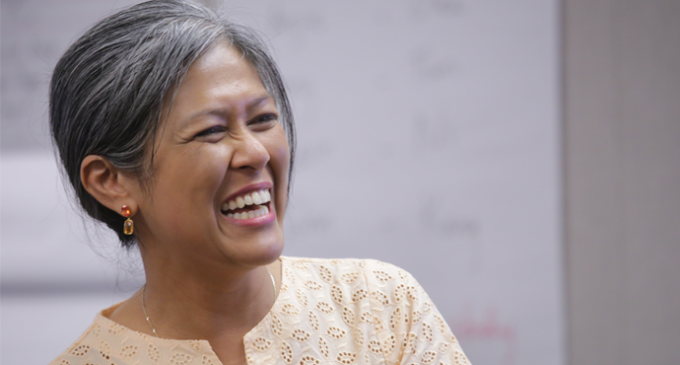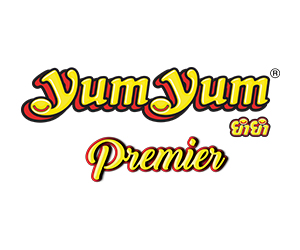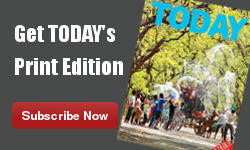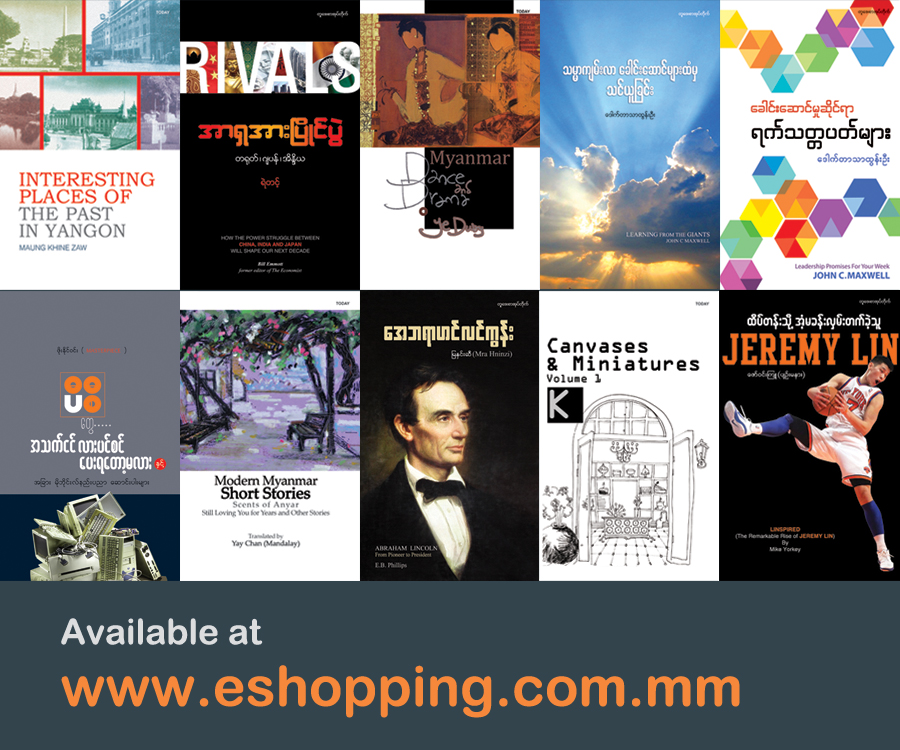“Invest In Education”: Dr. Miemie Winn Byrd

TODAY got a chance to interview Dr Mie Mie Winn Byrd, the president of Suu Foundation and here is what she talked about her views on Myanmar’s reform and something of her life.
Education background
I received my Bachelor of Arts (BA) with a dual major in Economics and Accounting from Claremont McKenna College located in Clare-mont, California, USA. My ability to attend this highly selective college, Claremont McKenna College, was made possible by the Army Reserve Officer Training Corp (ROTC) scholarship and General Omar Bradley scholarship. I earned my Master of Business Administration (MBA) with emphasis in Asia-Pacific Economics and Business from the Shidler School of Business, University of Hawaii, USA. I received my Doctorate in Education (Ed.D) from Rossier School of Education, University of Southern California, USA.
You are originally from Myanmar. Could you tell me more about it?
My family immigrated to the US when I was a teenager. As such, I grew up in southern California. It was very difficult adjusting to the life in the US given I spoke no English at the time and the American culture seemed very strange. I was already at an awkward stage of my teenage years and being put into a totally strange envi-ronment exacerbated my awkwardness which continued until the end of my college years. I always felt like an outsider. I don’t know if I would ever want to go through such experience like that ever again.
Could you tell me about your roles and responsibilities as an associate profes- sor at Asia-Pacific Center for Security Studies?
I research and teach in the areas of US-Myanmar relations, Asia-Pacific regional economic trends, the role of private sector for poverty alleviation, the role of women in economic deve-lopment strategy and peace, the role of education in nations’ development, organizational development and innovations, and the process of transformational learning in Asian context.
May I get your view on current US – Myan-mar relations and what do you think are the would-be impacts of 2015 election on the future relations between U.S and Myanmar?
Please note that these are my own opinion and not the US Government’s policy. I am pleased with the new relationship between the US and Myanmar that has emerged since 2011. As for the 2015 election, the US sees this as a signi-ficant milestone. Secretary John Kerry has recently stated that “next year’s election will absolutely be a benchmark moment for the whole world to be able to assess the direction that Myanmar is moving in. And it is important – in fact, beyond important – that that election be inclusive, accountable, open, free, fair, accessible to all, that it wind up being a credible election that leads to the peaceful transfer of power in 2016.”In today’s security environ-ment in the Asia-Pacific region, most of the security threats and challenges (trafficking in person/drugs/arms, transnational crime, infec-tious diseases, energy security, water security, pollution, climate change, to name a few) are transnational. As such no one country (even the US) alone can address and manage all of these issues. All countries in the region must come together in solving these most difficult trans-national security problems and threats. Addi-tionally, Myanmar is a member of ASEAN and it is situated in at the mouth of Malacca Strait, the most vital trade route in the region. As such, it is a very important country for the Asia-Pacific region’s stability and prosperity, which makes Myanmar of great interest to the United States.
I have learned that you were a civil affairs officer in the reserves. Could you explain a little about your duties at US Pacific Command?
I used to work at the US Pacific Command. I was mobilized for active duty after 9/11 and served 9 years at the US Pacific Command.I served in the capacity of a Plans Officer and Operations Officers in the Joint Inter-Agency Coordination Group for Combatting Terrorism (JIACG/CT) for 3 years of active duty and served as the Deputy Economic Advisor in the Policy and Strategy section of the US Pacific Command for 6 years.
You also have many private sector pro-fessional experiences. Could you share your work experiences at multinational corporations?
I was the Controller for Law and Economics Consulting Group (LECG) in the San Francisco Bay area prior to 2001. My sixteen years of civilian professional experience included a wide range of auditing, accounting, and financial management positions with multinational cor-porations such as Gillette, General Telephone and Electronics (GTE) and Ernst & Young and also with a Silicon Valley start-up firm, Wyzdom.com. My extensive experience in the private sector largely influences my thinking and writing on the role of private sector in socioeconomic development as an academic.
According to your knowledge on other countries’ democratic reforms, how do you view on the reform process of Myanmar especially economic reform and its progress?
A young democracy at the time of democratic transition is one of the most volatile times for a nation. As such, we can expect a degree of turmoil, which we have already seen in Myan-mar. Ian Bremmer’s concept of the “J-Curve” is a good way to describe the path a nation would travel as it transitions from the authoritarian regime to a democratic system. Bremmer explains while many countries are stable because they are open such as the United States, France, Japan, some other countries such as North Korea, Cuba, and Iraq under Saddam Hussein are stable because they are closed. Myanmar could be categorized in the latter group of stable countries under the previous authoritarian military regime. But such stability is a false one as it does not meet the needs of its citizens over the long run, including economic development, and does not protect the human rights and dignity of every citizen, which is important for sustained growth and real stability over time. Given how degraded much of Myanmar’s capacity has become, in terms of infrastructure, human resources, and institu-tional development, I think everyone needs to be patient – and the government will need to remain steadfast in its commitment to economic and political change — before we will see tangible economic results from reform. It is my hope that Myanmar government will be able to avoid repeating its history.
To reduce poverty level of the country, what are your suggestions for Myanmar government to implement as top priority?
Education, education, education!!! Invest in education of its citizens. Once people are educated, they will learn to solve many of their own problems.
Could you explain a little bit about Socio-Lite Foundation?
Socio-Lite Foundation is a non-profit organi-zation founded by my father as soon as the Myanmar government allowed such organi-zations to be established in 2011. On his 70th birthday, he put in $50,000 to start this organi-zation with his intent to combat poverty in Myanmar through microfinance programs for women and sponsoring education for children to achieve social impact of uplifting the lives of the poor. Socio-Lite Foundation (SLF) “Ba-wa-ne-gyi” believes in giving every family the chance of a promising future. My father felt that we have a social responsibility and duty to help those who are less fortunate in Myanmar.We do not accept the status quo in which 37% of the nation’s 51 million people are unemployed, and one-third live on less than $1.25 a day. As of August 2014, SLF is servicing over 10,000 active micro-entrepreneurs and has provided scholarships to 1611 primary school students for the current school year. 34 of our micro-businesses have graduated to small busi-nesses (creating jobs and employments for their respective communities) in 2014. Socio-Lite’s success is due to the organization’s ability to customize Dr. Mohammad Yunus’ micro-finance principles and business model to specifically fit Myanmar’s environment, culture, and people. For more information about Socio-Lite Foundation, please visit us at www.sociolitefoundation.org and follow us on Facebook for our on-going activities and programs. In time, we hope to inspire others to join our efforts and achieve a wider social impact in Myanmar.
May I know about Suu Foundation in brief and your contribution to it?
Suu Foundation is a non-partisan humanitarian organization dedicated to advancing the health and education of the people of Myanmar.Suu Foundation is committed to improving health-care and supporting education in the country of Myanmar (Burma). The Foundation’s vision and goals are established by Nobel Peace Prize laureate and Burmese Parliamentarian, Daw Aung San Suu Kyi. Through this registered nonprofit organization, Daw Suu is rallying the international community to support the deve-lopment of Myanmar, which has been isolated from the rest of the world for the past several decades. The idea of Suu Foundation was con-ceived during Daw Suu’s visit to Hawaii in January 2013. She requested our help to garner more support from the US and the international community for advancing health and education for Myanmar people. We (a group of Burmese-Americans living in Hawaii) legally registered the organization in March 2013 and publically launched the Suu Foundation in March of 2014 at the East-West Center’s International Media Conference in Yangon. We asked Mrs.Hillary Clinton and Mrs. Laura Bush to support our efforts and they kindly agreed. We have conducted several pilot projects in Myanmar. Please visit our website at www.suufoundation.org and follow us on Facebook for more information.
What is your view on the status quo of Myanmar education sector and what are your suggestions for its development in order to stand tall in global arena?
Based on my conversation with many Myanmar educators, many people within the Myanmar education sector do understand that they must reform and upgrade the system. However, they are currently struggling with how to turn that understanding into practice given over half a century of rigidity that had been reinforced within the organization. Organization changes are never easy, even in the US organizations. Generally, human do not like uncertainty and people tend to want to hang on to what they have always known. Patience and understand-ing are needed for those who are within the system and grew up in the system. We have to understand their fears and the drivers behind those fears. We also need to help create new metal pictures for the administrators and decision makers within the system to imagine and see what the modern education institutions would look like. Once they have these pictures, it will reduce uncertainty in their minds and hopefully reduce their fears for change. I have always advocated for expanding the admini-strators and decision makers’ mindset by exposing them to variety of international educa-tion systems. Such hands-on experiences will inform their thinking and enable them to imagine what Myanmar modern education and school system should look like for the future.Next, we need to move away from rote learning to critical thinking and problem solving. We need to emphasize acquisition of English. However, these are not easy and quick fixes, but doable. Other countries have done it. Based on other countries’ experiences, it will probably take about two generations to re-educate Myan-mar. And…we have to start now.
What are your other interests and hobbies?
My favorite hobby is to spend time with my husband and children. We normally enjoy water sports such as swimming, sailing, SCUBA diving, snorkeling, kayaking, boogie-boarding, and land sports such as tennis, hiking, and camping. I also love reading. I think I retained my Burmese language despite long periods of not using it because I was such an avid reader as a child. I used to steal Burmese novels from adults and quietly read them under the house when I was young. I clearly remember reading novels by the famous Burmese author, DuWun. However, it has been a while since I had a luxury to read fiction for fun. As an academic, I have to read a lot of non-fiction books and therefore, no longer have time for novels. I miss that.
Your favorite motto in life
I love Walter D.Wintle’s poem “Thinking.” It is all in the state of mind. If you think you can, you will. If there is a will, there is a way.
Your favorite books and two or three must-read books that you recommend for personal development
1. Leadership on the Line: Staying Alive Through the Dangers of Leading by Ronald A. Heifetz and Marty Linsky
2. Development as Freedom by Amartya Sen
3. The Fortune at the Bottom of Pyramid: Eradicating poverty through profits by C.K. Prahalad.
./wp-content/uploads/2018/10/Emirate-Online-TDY.png)



















There are no comments at the moment, do you want to add one?
Write a comment